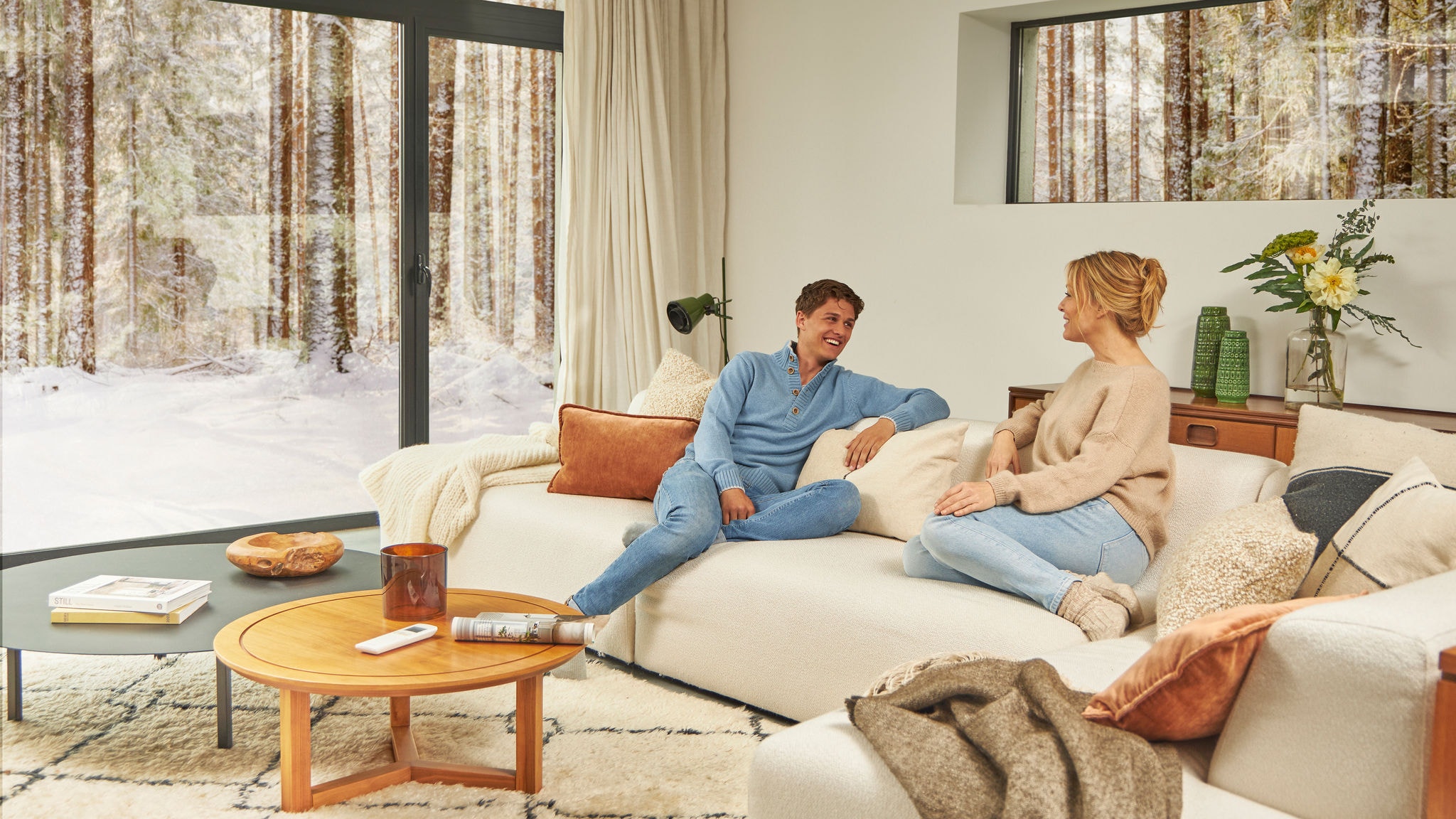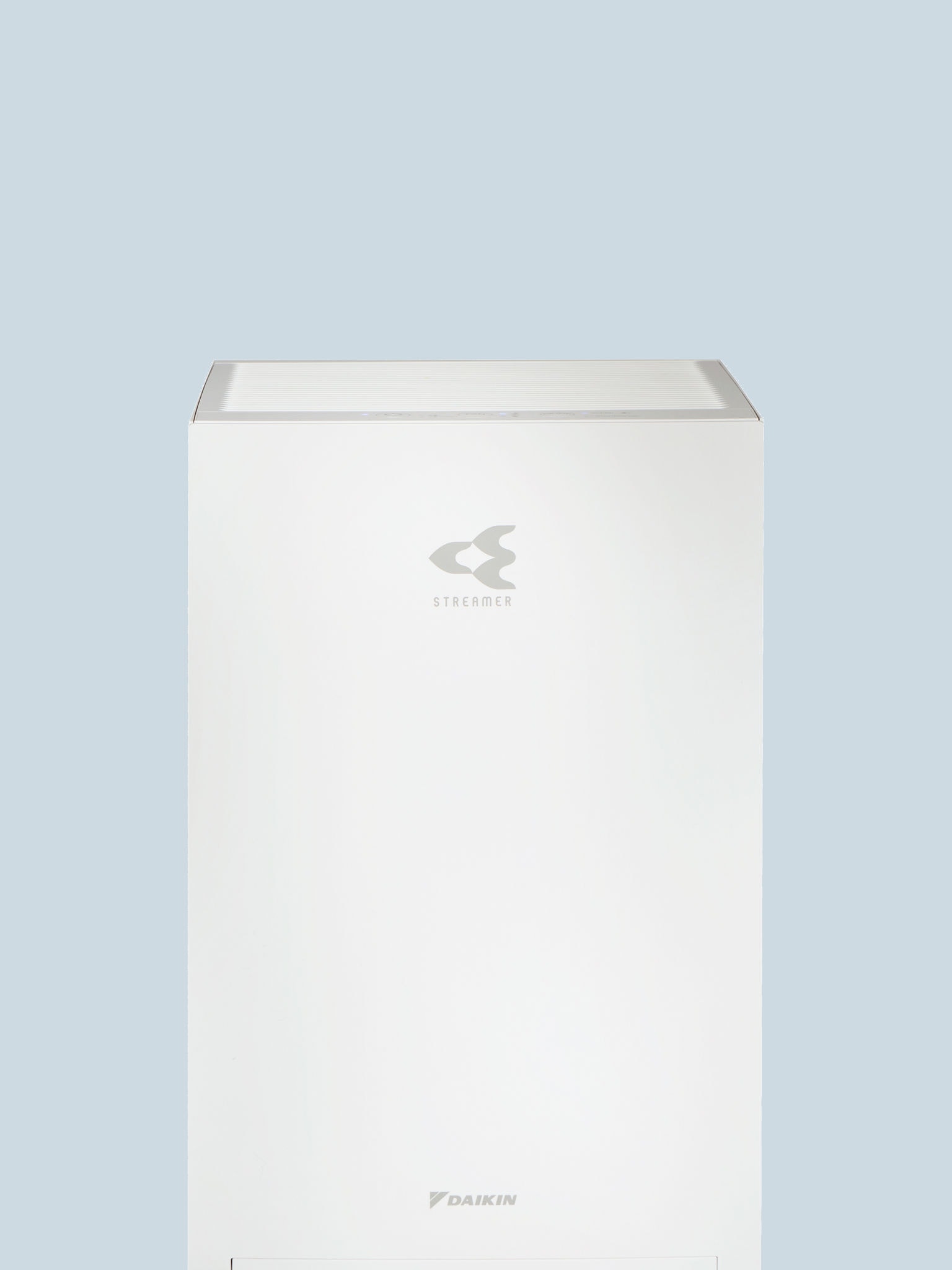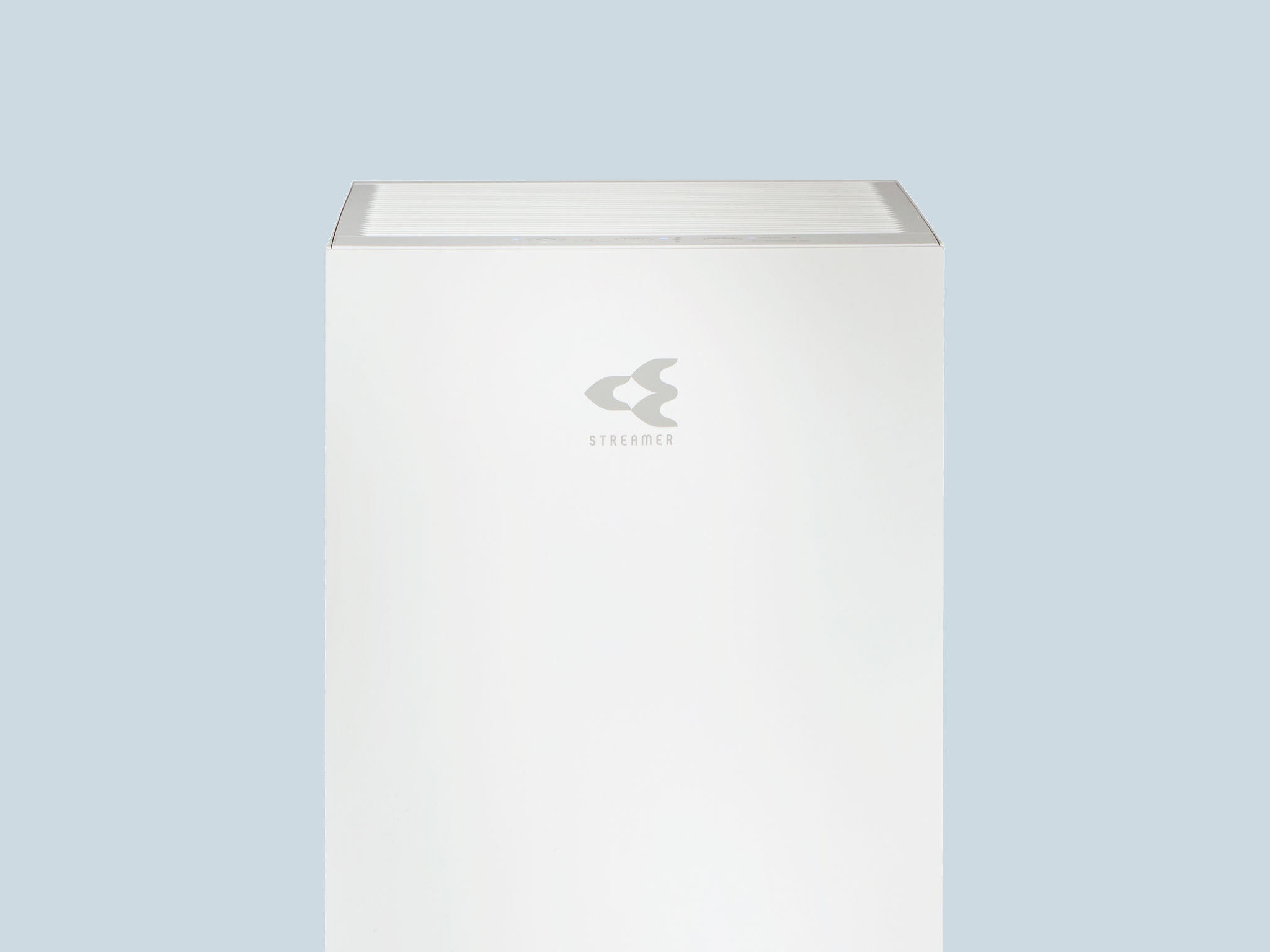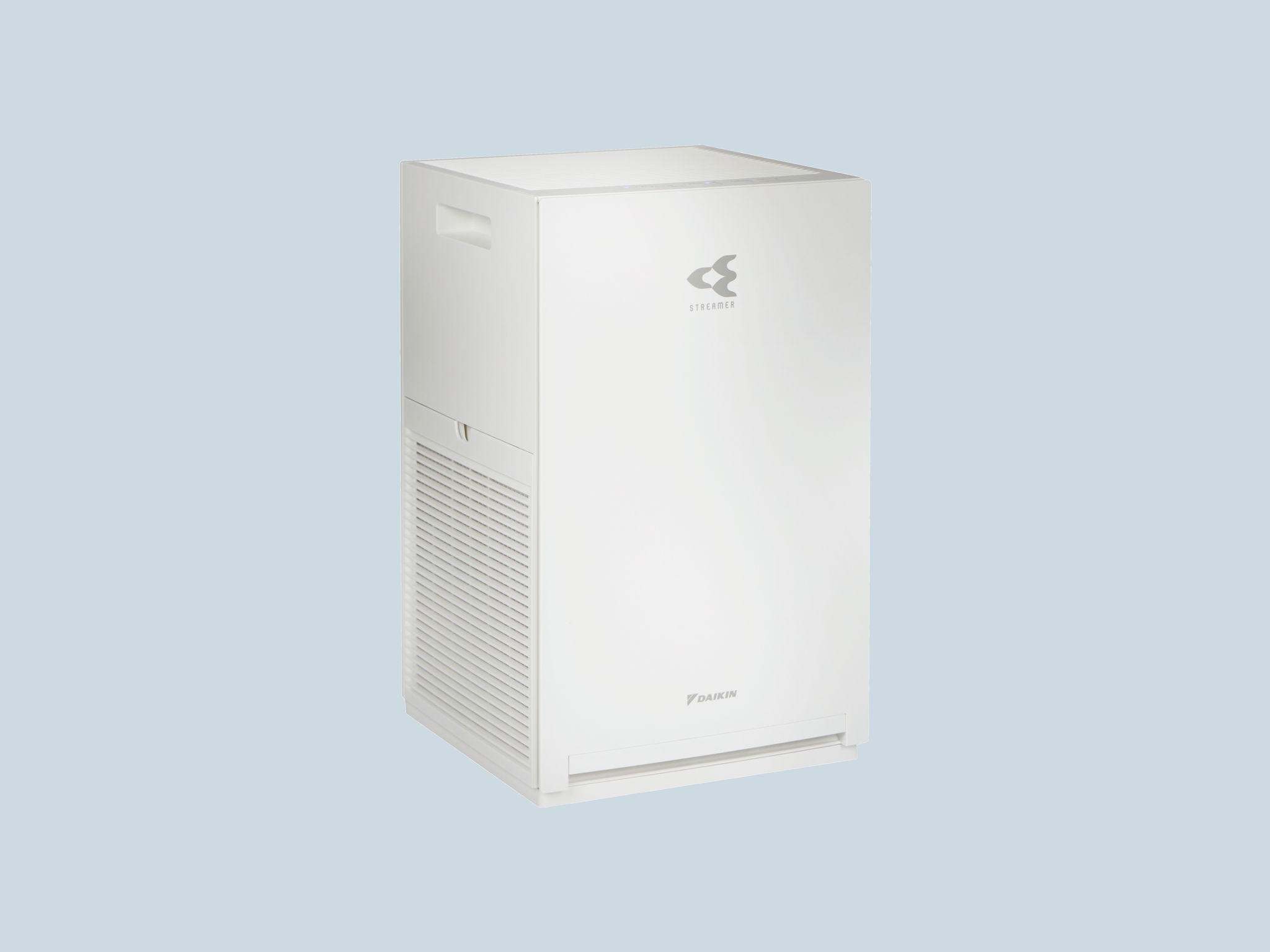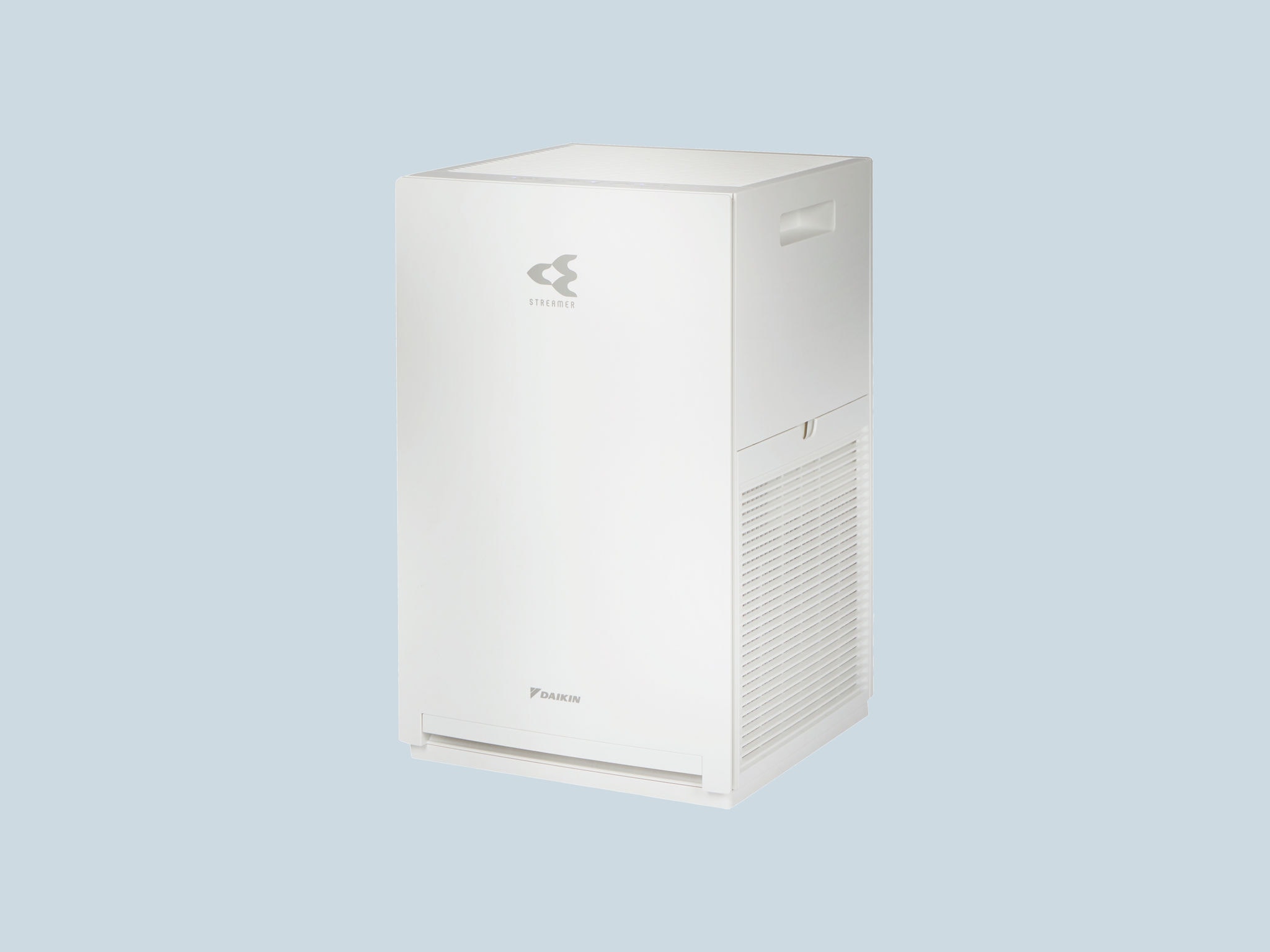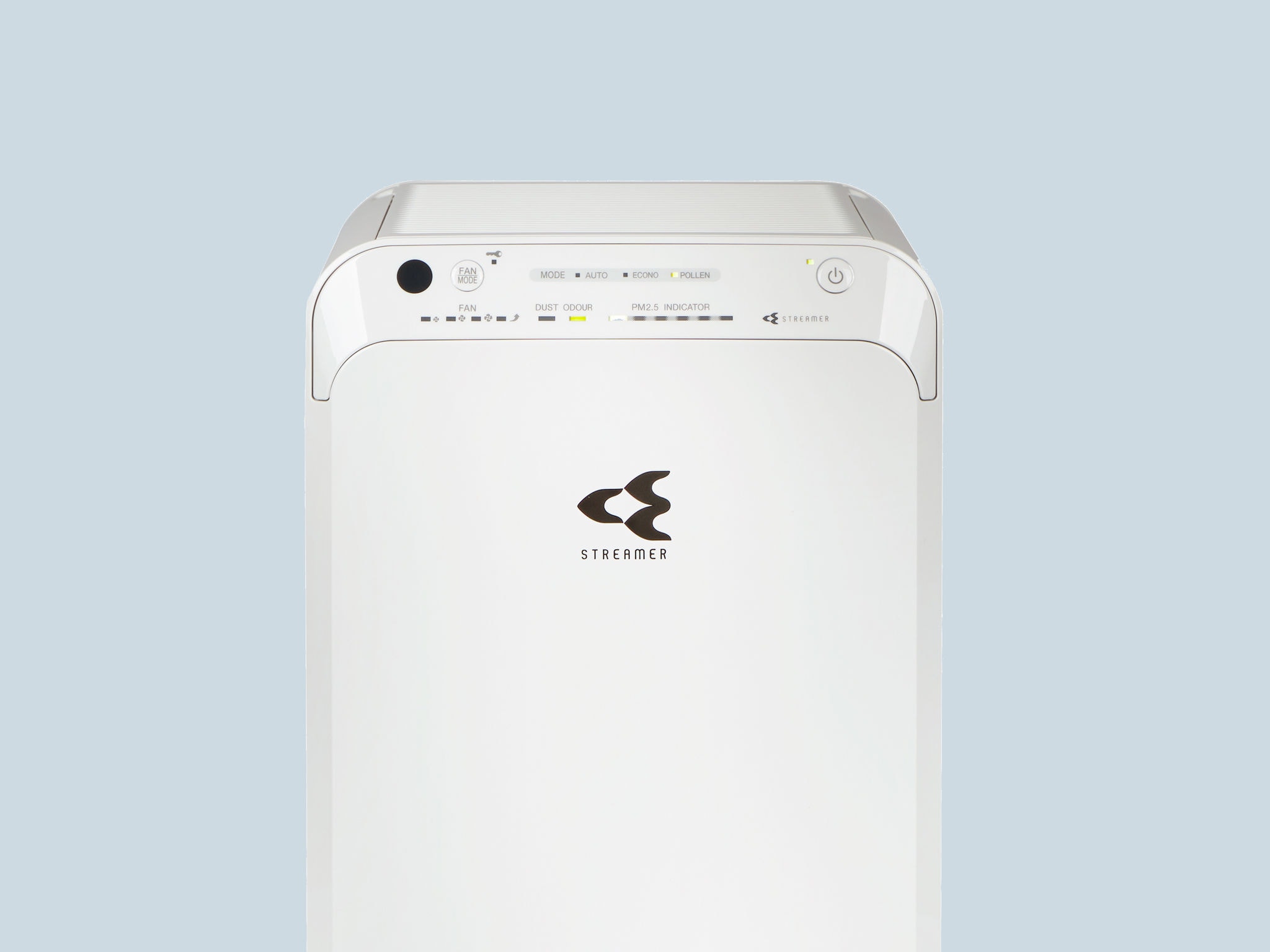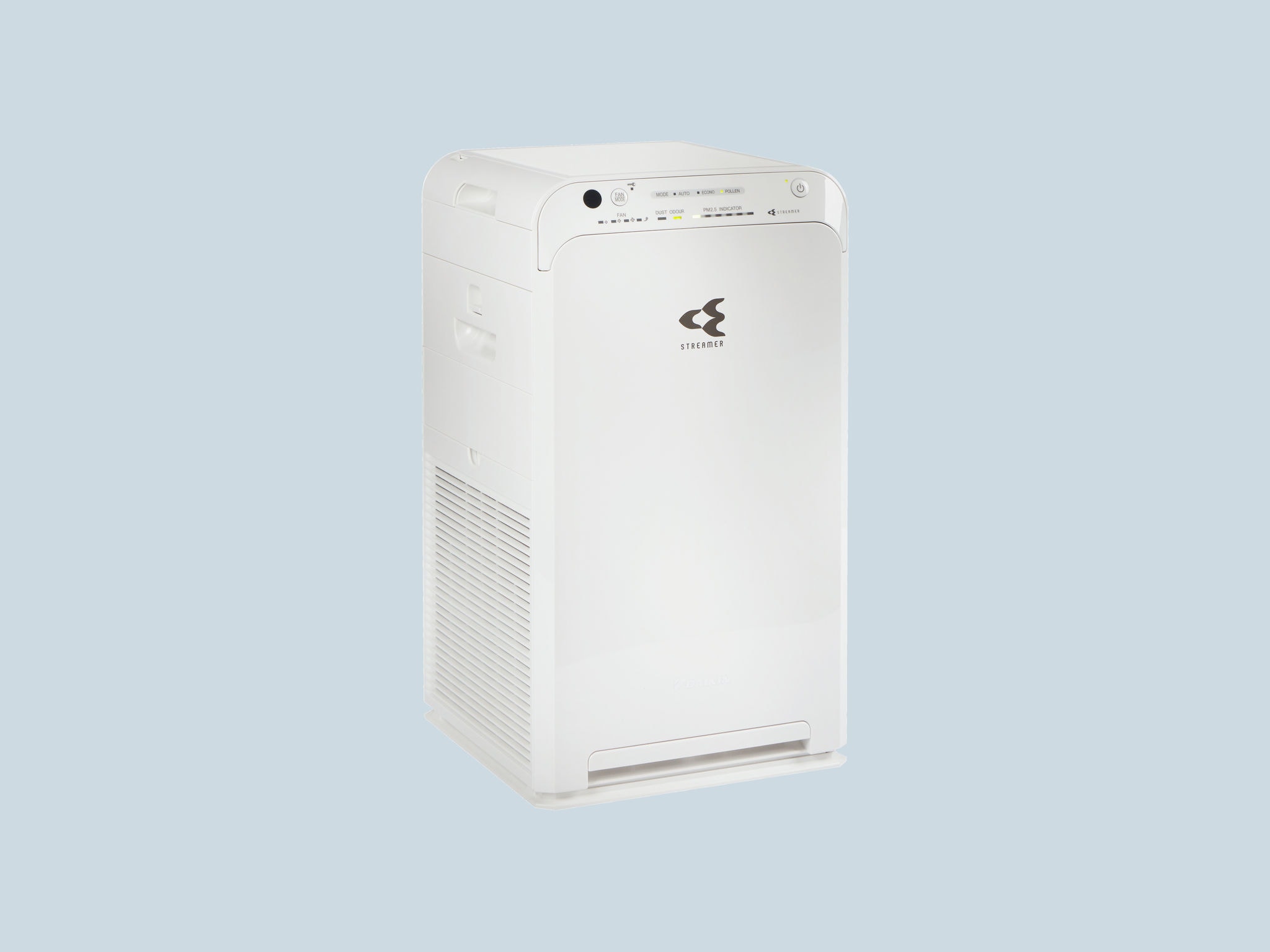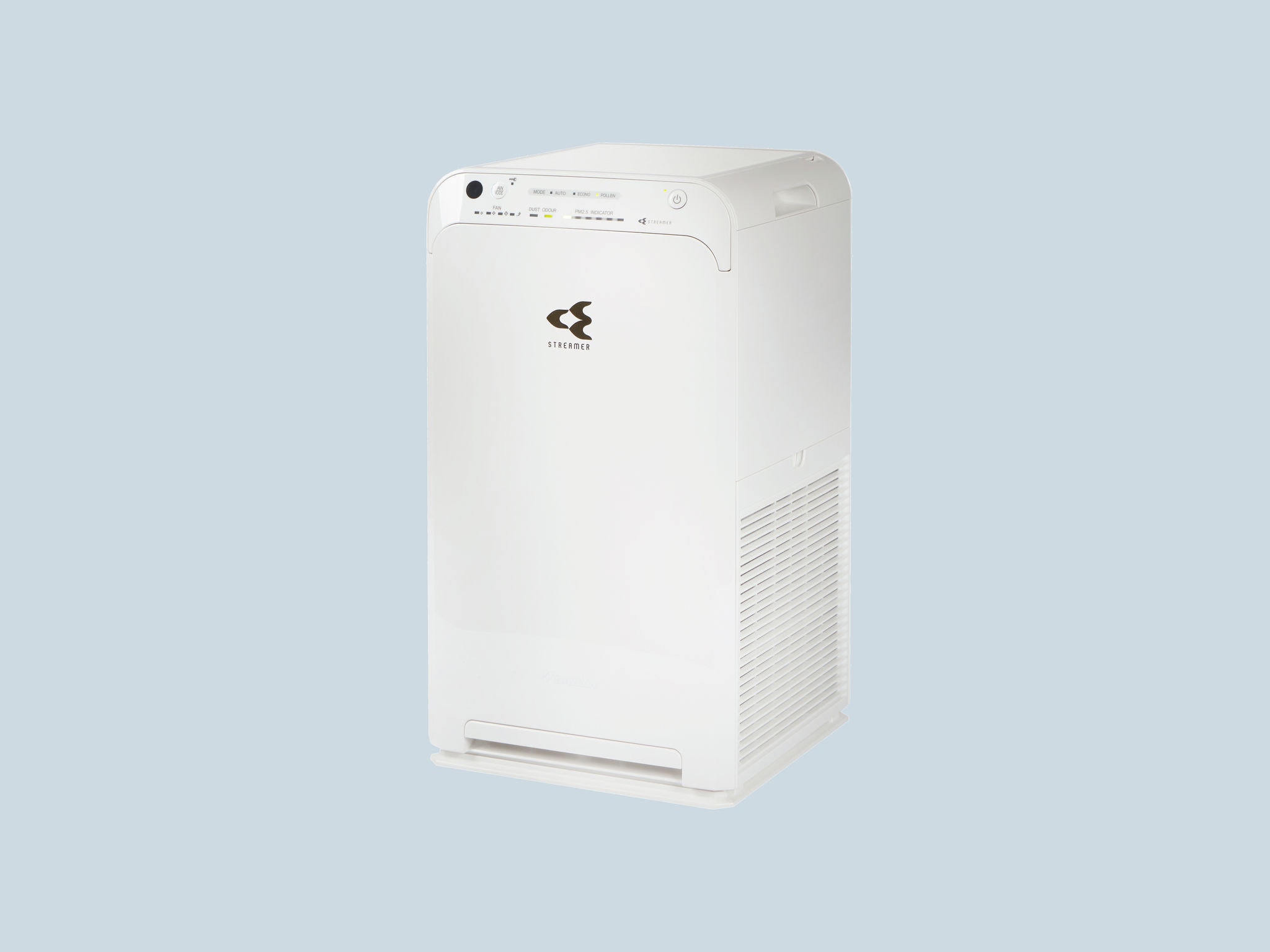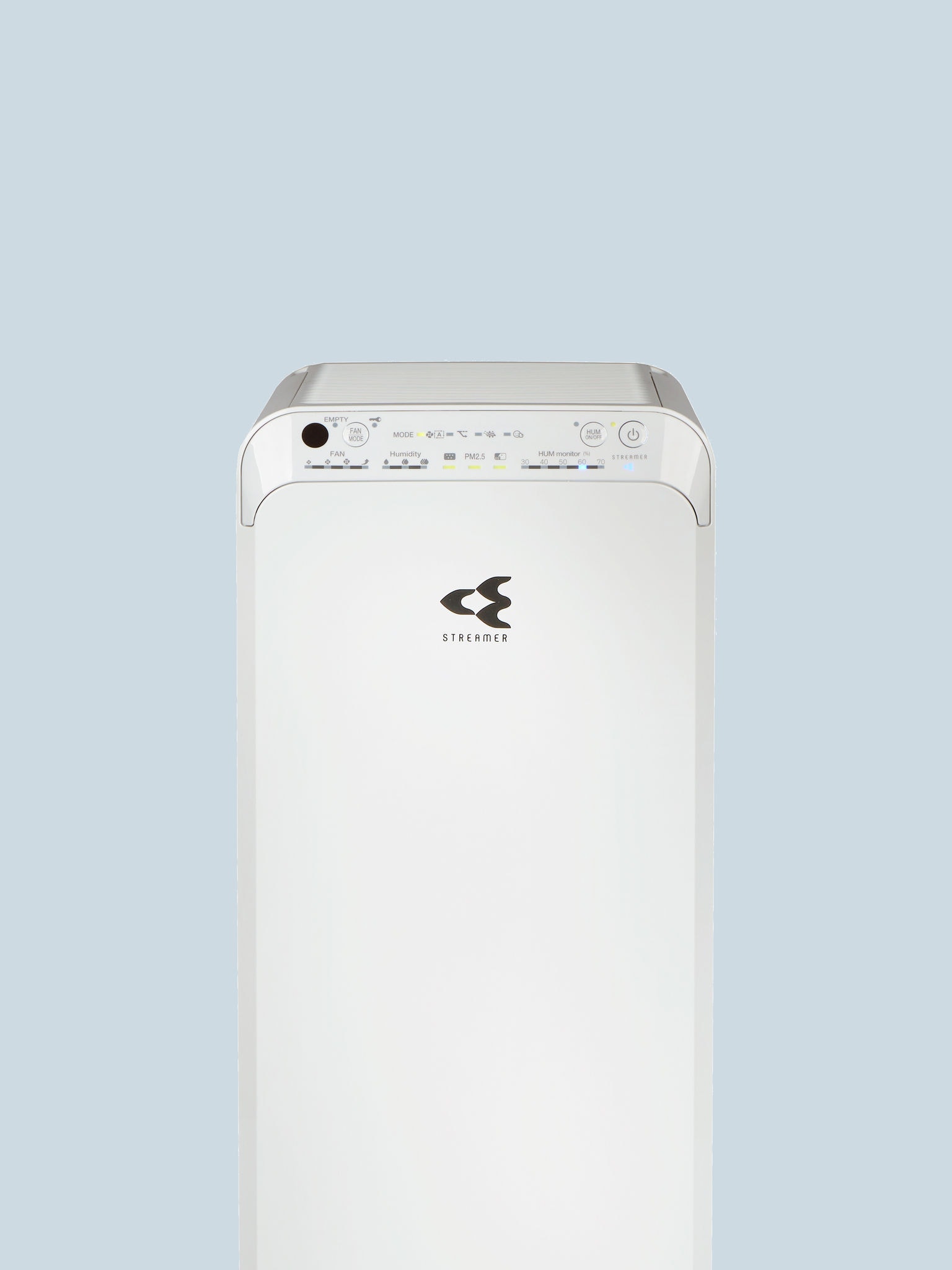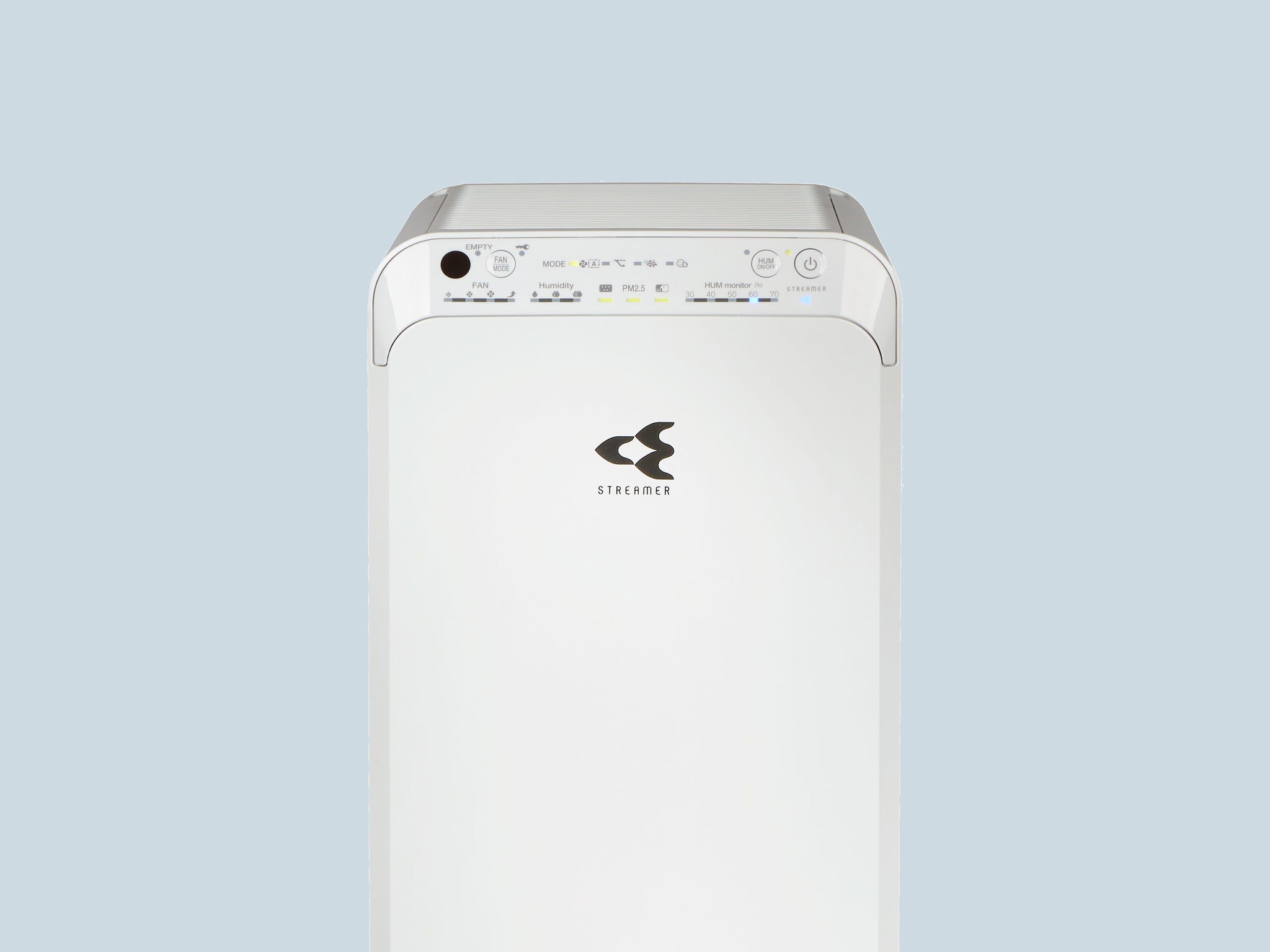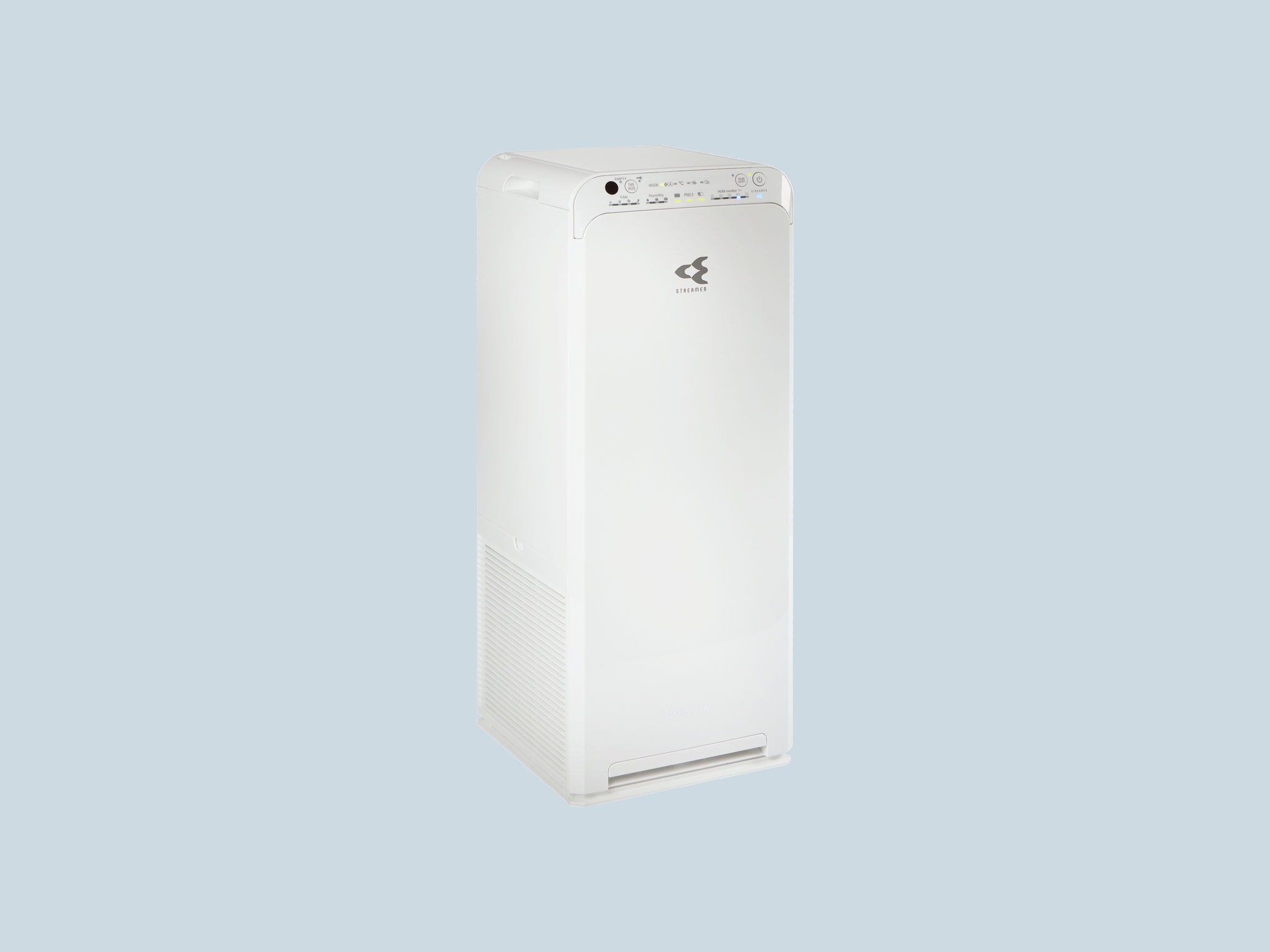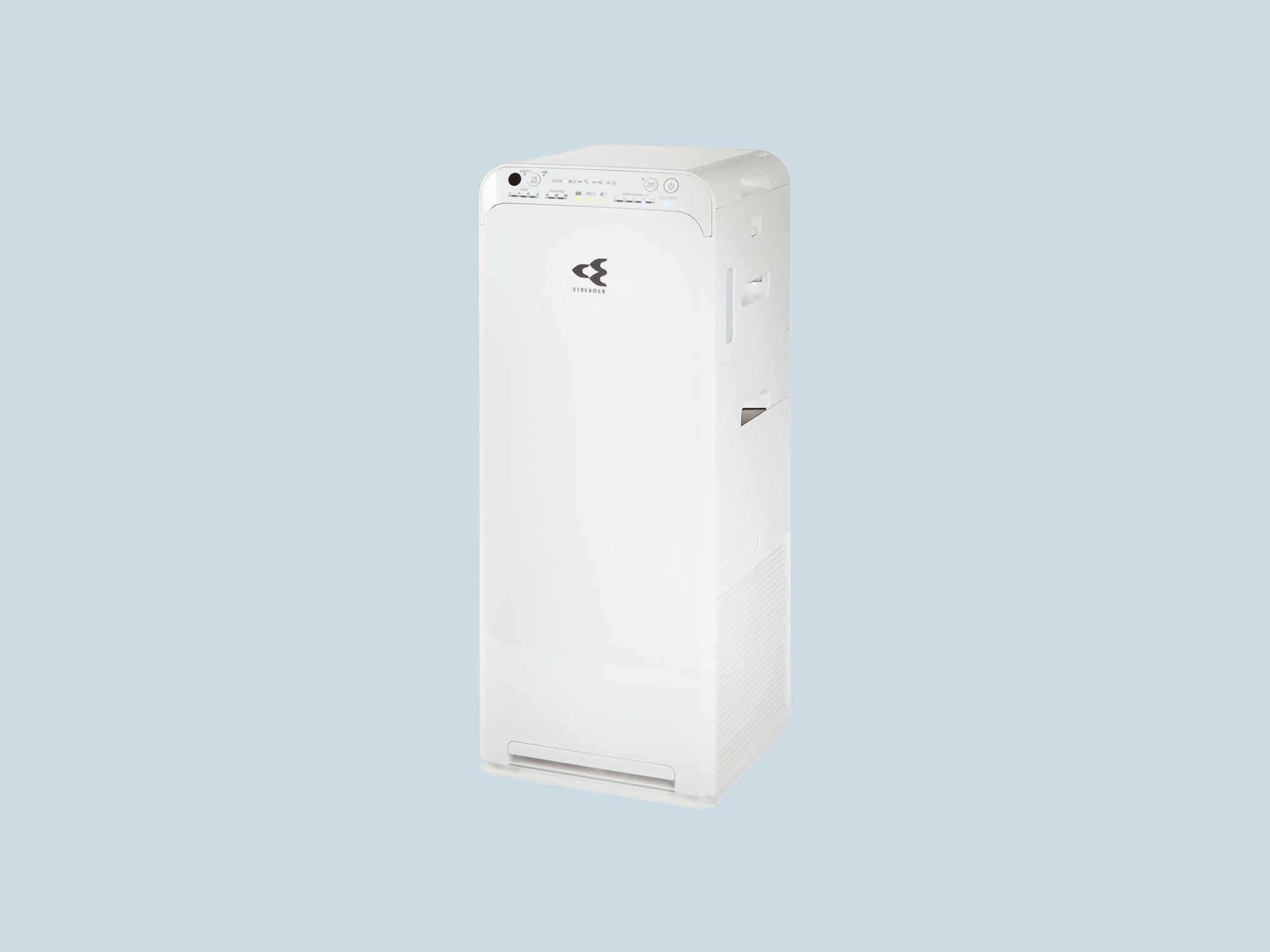How a Daikin product helps you in making your house a home?
At Daikin, we believe that a house becomes a home through comfort, care, and the joy of shared moments. Discover our comfort solutions for your home.

Replace or enhance your existing central heating system with a heat pump, a sustainable heating system designed to heat, cool and provide domestic hot water for your house
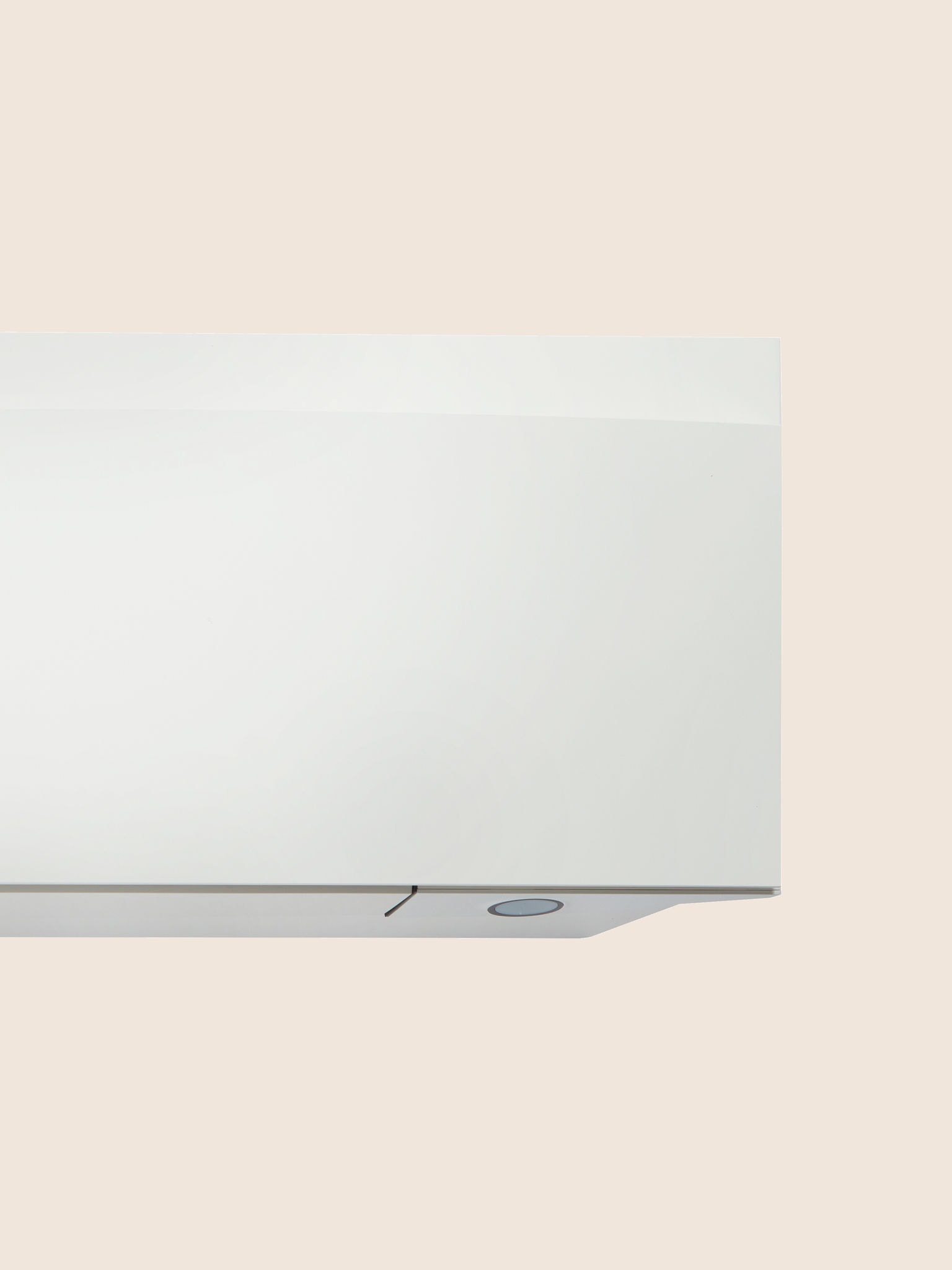
Get year-round comfort at home with advanced, efficient heating and cooling technology. Adding a tank will give you domestic hot water too.

Purify the air and get rid of those fine harmful pollutants invisible to your eyes, creating a healthy home for you and your loved ones
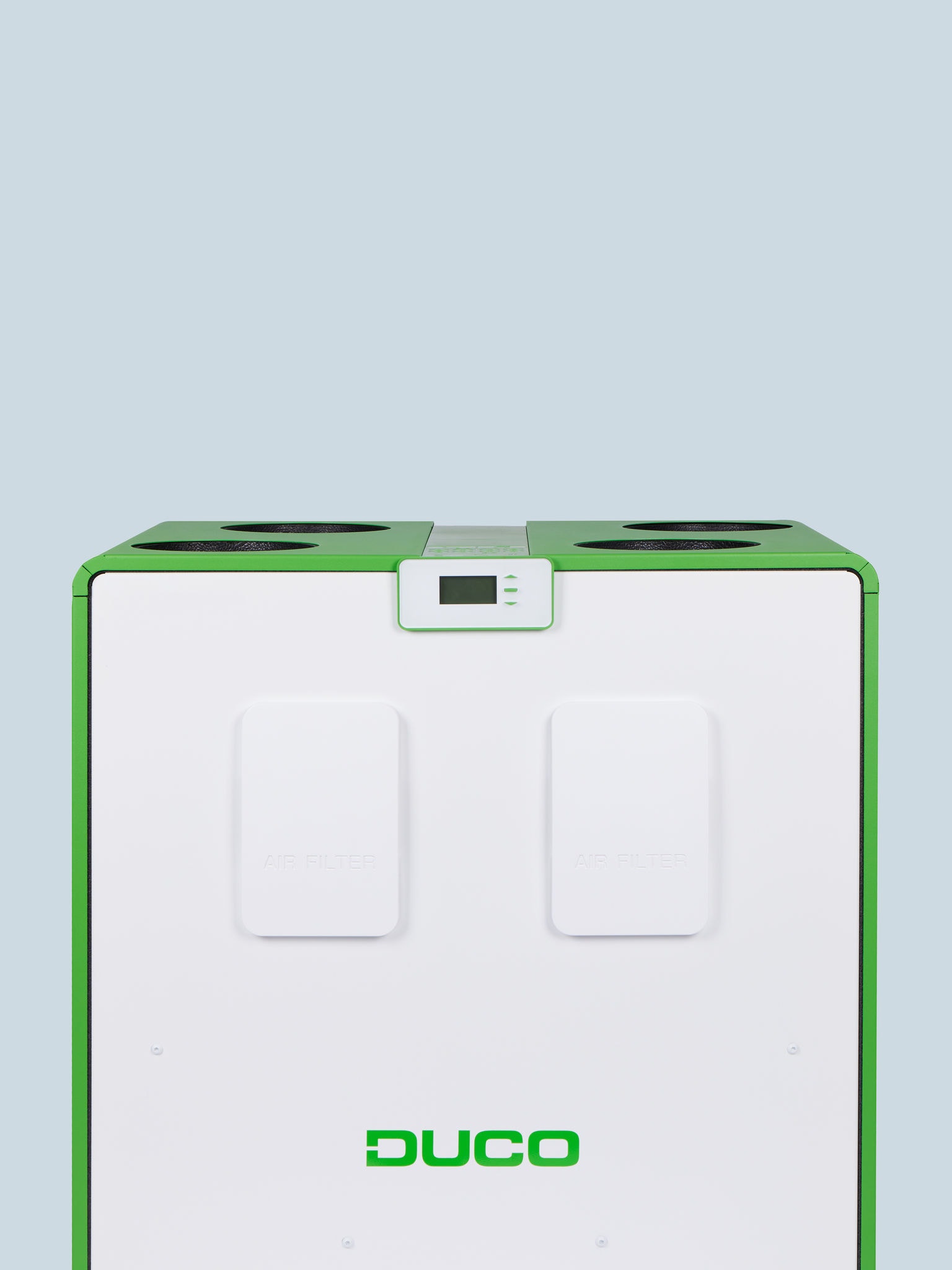
Create a healthy environment for your well-being with fresh air while saving on your heating bills with a centralised heat recovery ventilation system
Discover our solutions starting from your needs
Our solutions are tailored to each customer's specific requirements. Our product range guarantees your home achieves the highest level of comfort with sustainable and cost-effective systems that provide:
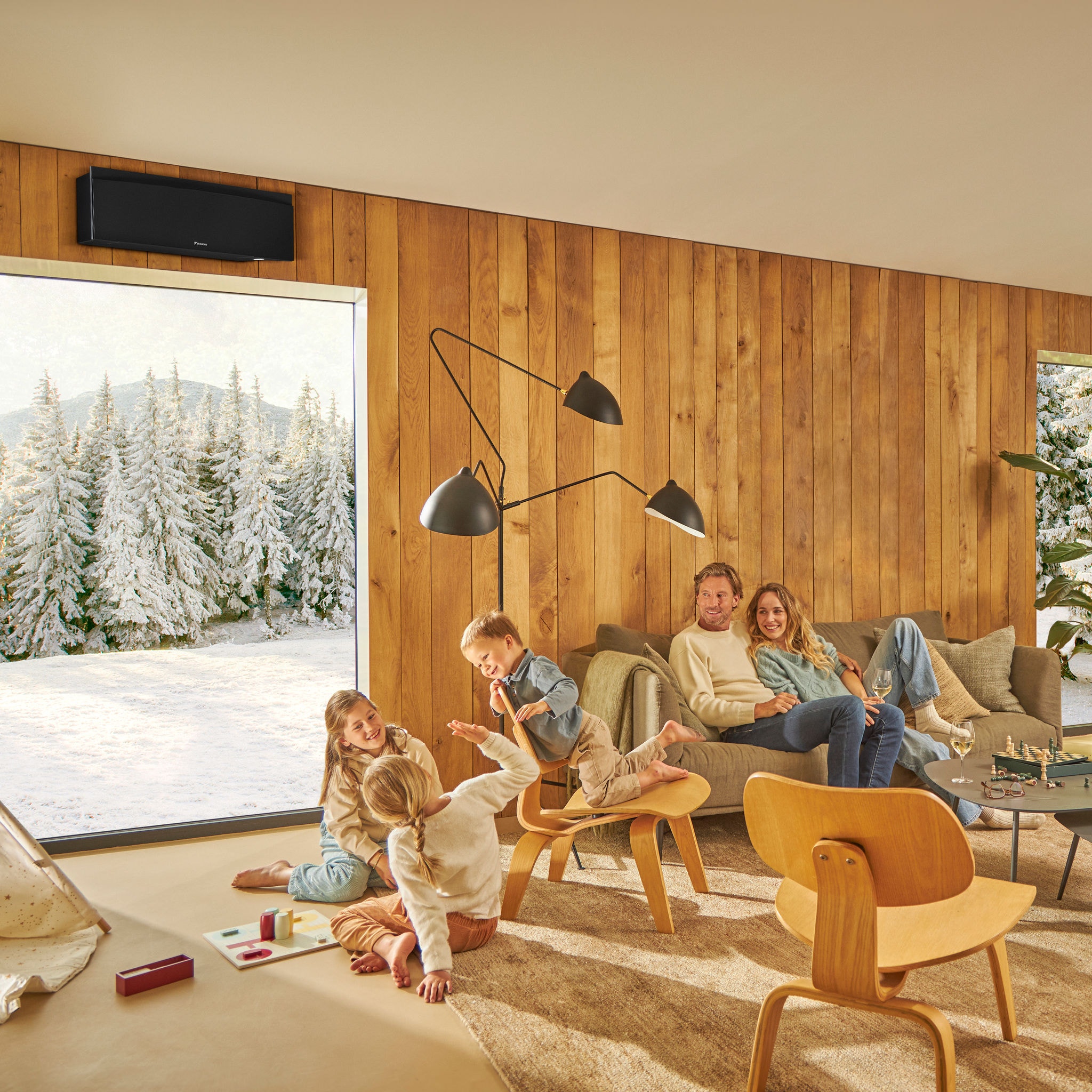
1. Heating, cooling and hot water
Our heat pumps provide reliable heating, cooling, and domestic hot water all year-round, creating the perfect/cosy environment for you to make your house a home
Are you replacing an existing heating system or considering a new one? Then you might be thinking about moving away from fossil fuel systems towards something less affected by rising energy prices and with a lower impact on the environment.
Every home has different needs.
Let’s consider the options that have a low environmental impact.
Not sure what solution fits your needs?
Let us guide you to the solution best fitting your needs and situation.
Our solutions for heating, cooling and hot water
Choosing the right heating system depends on the sort of home you live in, your budget and your lifestyle. There are many alternatives, depending on what you’re looking for.
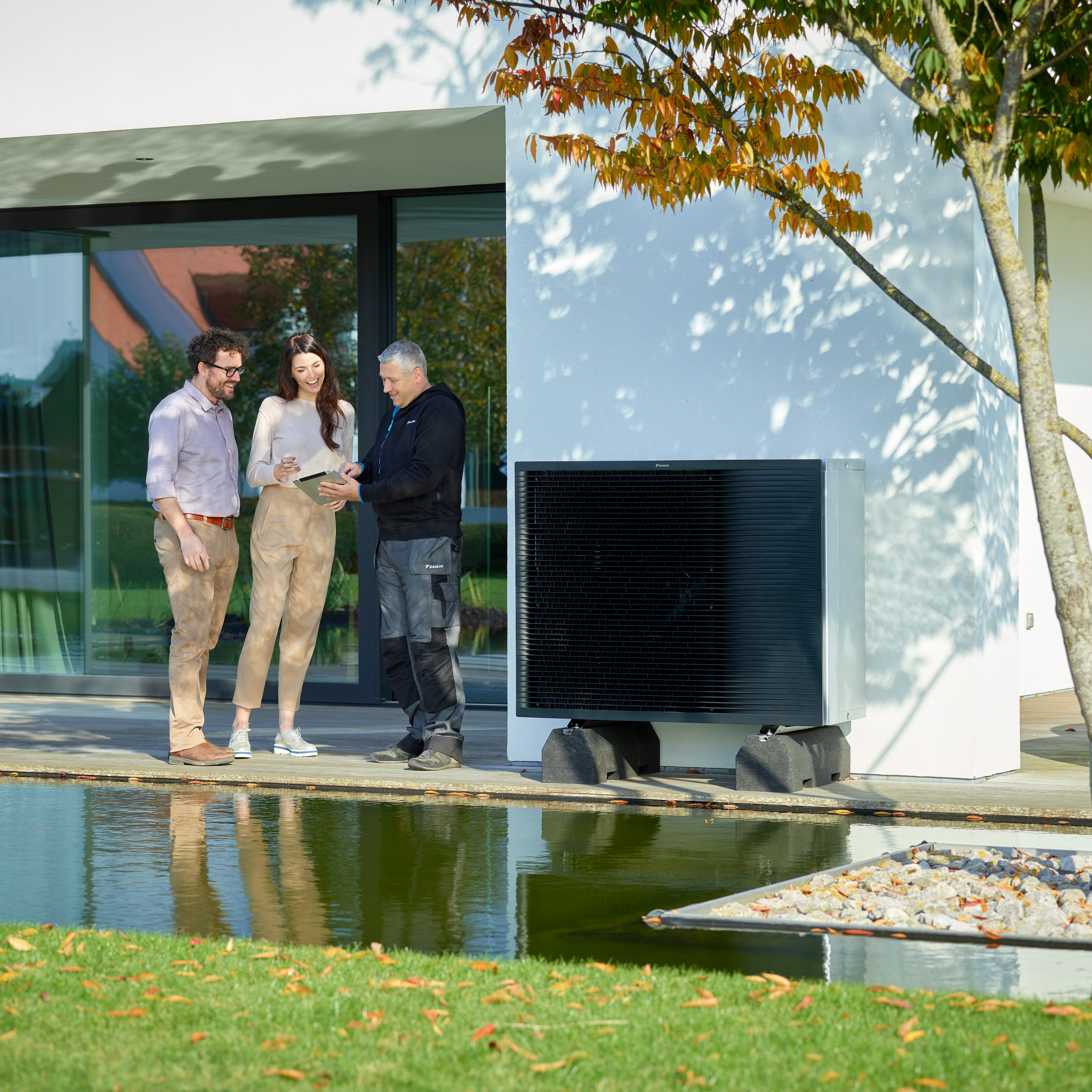
Air-to-water heat pumps
Air-to-water heat pumps are cost-efficient, renewable energy, all-round heating, cooling and domestic hot water systems. You can count on a versatile integration with existing and new heating emitters. Ideal for new homes, renovations and replacement of boilers.
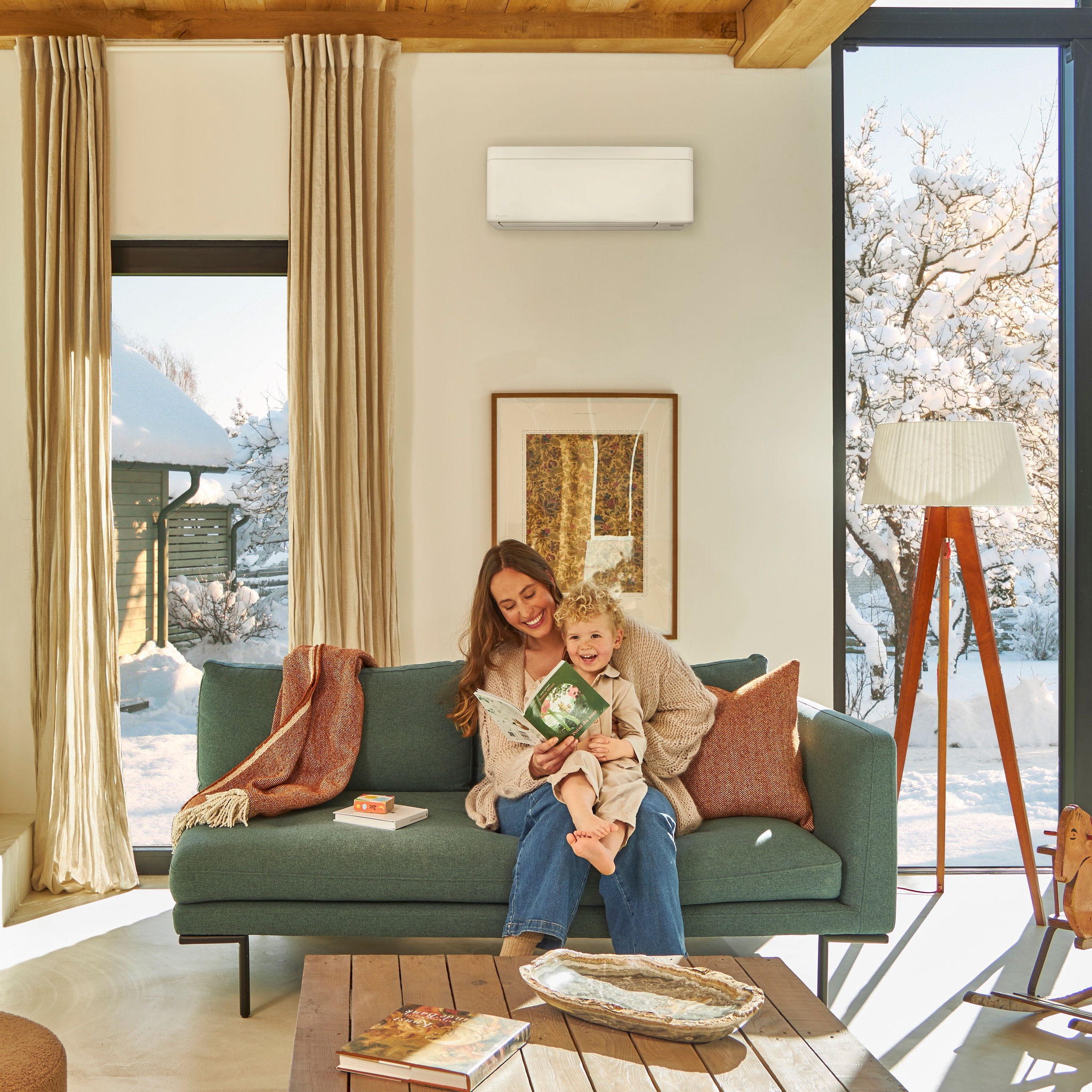
Air-to-air heat pumps
Get year-round comfort at home during summer and winter with advanced, efficient heating and cooling technology. Adding a tank will give you domestic hot water too. Ideal for new homes, to accompany your boiler and to replace your old electric systems.
What is a heat pump?
- A heat pump is an efficient low-carbon technology and delivers more energy than it consumes.
- It uses renewable energy sources such as air, water and geothermal energy to provide heating, cooling and hot water for your home.
- Indoors, this energy is then released through emitters such as radiators, underfloor heating, air-to-air indoor units, heat pump convectors and your hot water system.
What are the different types of heat pumps?
Our most popular heat pumps

Air-to-water high-temperature heat pump designed to be the perfect heating system replacement in older homes
Our high-performance wall-mounted solution heats, cools and purifies the air in your home
Six reasons to invest in a heat pump
Investing in a heat pump offers numerous advantages. Below are six key reasons why a heat pump is a smart investment for our home:
- A heat pump increases the value of your property: The installation of a heat pump has a positive effect on the EPC (Energy Performance Certificate) of buildings in Europe, often resulting in a jump of one or more energy classes. Subsequently, prospective energy savings and improved comfort provided by energy-efficient homes are reflected in an increase in the value of the property or the rental fee. The value increase is in the order of 2-8%.
- Heat pumps result in savings on energy costs: The installation of a heat pump to substitute a natural gas boiler as a heating and domestic hot water system is expected to generate energy savings over the forecasted period of 10 years. It’s expected that the savings will increase in time.
- Incentives: Heat pumps may appear to require a larger initial investment compared to traditional heating systems. However, when considering the purchase of a heat pump, it is important to know that the chances of premiums are high which makes investing in a heat pump very attractive.
- A (possible) ban on conventional heating technology: European governments are on a journey towards their net-zero ambitions. More countries pledge to achieve net zero emissions over the coming decades. These long-term targets can only be achieved by setting measurable near-term milestones.
- The reduced environmental impact: Heat Pumps are one of the key solutions for reaching EU decarbonisation goals. Our case study shows that a Daikin heat pump is 2-24 times less carbon intensive helping to save from 0.2 to 2 tons of CO2-eq during the use phase on a yearly basis (depending on the emission factor of each country's electricity grid).
- Combine a heat pump with solar panels to save energy: The combination of a heat pump and solar panels (PV) is a great way to save energy. The heat pump can partially run on free electricity thanks to PV installation.
More information about heat pumps
Find the answers to all the questions you might have about heat pumps and how they can work for you
Yes, heat pumps can connect to either old or new radiators.
If you already have radiators in your home, high-temperature heat pumps or hybrid heat pumps (if you’re replacing a gas boiler) can easily connect to them and use existing piping without the need to replace the radiators or carrying out additional works.
Most heat pumps usually come with an indoor and an outdoor unit. Each unit produces sound when in operation, this sound is generally measured in dBA and these levels range from a scale of 0 dBA to 140 dBA.
When looking at sound levels you will also see specifications given for sound power level and sound pressure level.
Sound power level is the sound level measured directly at the source.
Sound pressure level is the sound level measured at a specified distance (usually 1.5 - 2 metres) from the source.
The indoor units of Daikin heat pumps generally produce a sound pressure level of about 30dBA, which is comparable to the sound of a person whispering.
Outdoor units, since they come in a bigger variety of sizes, range in sound pressure levels between 40dBA and 62 dBA, which are comparable to the sounds of birds a chirping and people having a conversation respectively.
The typical lifespan of a heat pump is generally between 15 and 20 years, though this depends on a number of factors. For example, maintenance. Although heat pumps are a low-maintenance solution, an annual check-up by your installer or service partner will help maximise its lifespan.
Across Europe, different countries have different regulations and incentives on national and regional level to support the purchase and installation of a heat pump.
As each will have their own schemes and eligibility criteria, we advice you to consult your chosen Daikin installer, or your government's website, for more information.
Heat pumps are not very demanding. We advise scheduling an annual maintenance appointment with your installer or service provider to make sure your pump keeps working as efficiently as possible. A typical service would include a number of standard checks, as well as a thorough cleaning of the unit and filters.
A Daikin heat pump installer will manage everything related to ordering, delivery and installation of your heat pump.
The simplest answer is, it depends. Installing a heat pump is more than just the placement of an indoor and an outdoor unit, therefore there is no definite timeframe when it comes to the amount of time it will take to install a heat pump as it will depend on a number of different factors such as:
- Type of home: The first thing that will be taken into account is the type of home a heat pump will be installed in. Is it a new-build or an existing home? With new-build homes, the planning needs to be taken into account with all other building currently taking place. With existing homes, things such as whether existing emitters will be used or will be replaced with new ones will play a part in the time needed.
- Type of heat pump: Since there is a variety of different heat pumps, each one also has its own time requirement for the installation.
- Additional works: Whether you are installing a heat pump in an existing or new-build home, there may be additional works that need to take place in order to ensure that you’re getting the most out of your new system. This could include the installation or replacement of emitters (such as radiators), optimising your insulation etc.
The price of installing a heat pump varies depending on the type of heat pump you choose and the country you live in.
Other factors that can affect the price are renovation or additional building works (such as insulation) that need to carried out, plus your installer. Different installers will have different prices according to their expertise and experience.
You can get advice on which type of heat pump is best suited to your home from a Daikin installer, staff at the manufacturer’s flagship store, or consult our residential solutions navigator.

2. Air purification and ventilation
Improve the indoor air quality in your home with our air purifiers, ventilation and air-to-air heat pumps
Why is it important to breathe healthier?
Did you know that we spend up to 90% of our times indoors, yet the air can be two to five times worse than the outside air?
The average adult breathes 15,000 liters of air each day. While we care so much about the food we eat, we often are unaware of the quality of the air we breathe 30,000 times a day because of the invisible pollutants to the human eyes.
Indoor air pollution can come from various sources, including fuel-burning appliances, tobacco products or accumulated allergens and dust indoors. Even outdoor sources such as general outdoor air pollution can add to the problems.
Indoor air pollutants and particles
- With the right system (air conditioning, ventilation, air purification equipment) air pollutants such as pollen, spores, cement dust, bacteria, viruses or germs can be filtered out of the air.
- Particulate matter contains microscopic solids or liquid droplets that are so small that they can be inhaled and cause serious health problems. Some particles less than 10 micrometers in diameter can get deep into your lungs and some may even get into your bloodstream. Of these, particles less than 2.5 micrometers in diameter, also known as fine particles or PM2.5, pose the greatest health risk.
- The smaller these particles, the more dangerous they are for our health, therefore particulate matter is categorised based on its size.
Our solutions for optimising your indoor air quality
Check out the following products that offer purification and filtration to keep your indoor air quality good, even when there’s pollution outside
Purify the air and get rid of those fine harmful pollutants invisible to your eyes, creating a healthy home for you and your loved ones
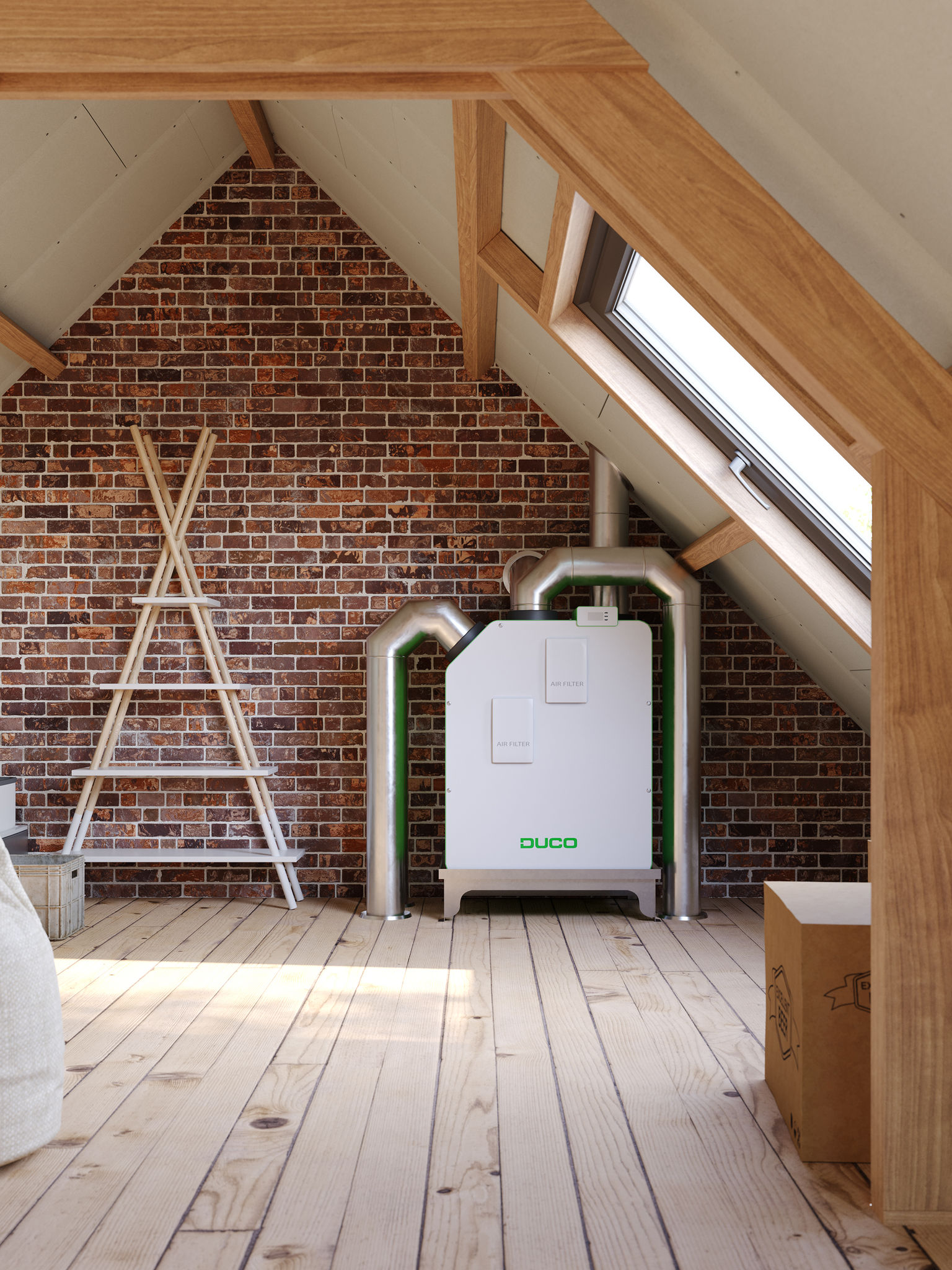
Create a healthy environment for your well-being with fresh air while saving on your heating bills with a centralized heat recovery ventilation system
Our air-to-air heat pumps provide heating, cooling and delivers clean air for optimal comfort
Check-out our air purifiers on discount
As we welcome the winter season, give the gift of healthier air for your loved ones with an attractive discount
